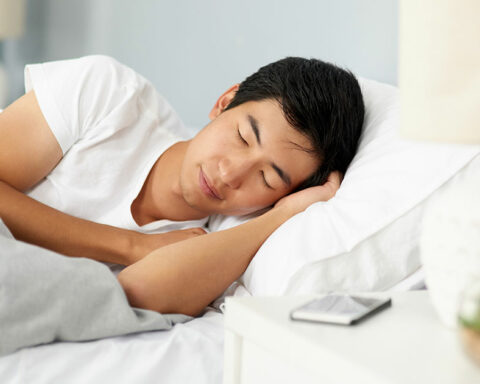Sleep should no longer be considered an obvious thing that happens every night. That’s why you need a sleep schedule. You can reset your sleep schedule to align with your internal clock or circadian rhythm. Avoid naps when tired, dim your lights, be consistent, and adjust your sleep time. You can achieve quality sleep by aligning your sleep schedule and circadian rhythm. This article will explore how to reset your sleep schedule and start having the quality sleep you deserve.
Why Your Sleep Schedule Gets Off
Your brain keeps learning and registering new experiences; it will be difficult to sleep when you travel to a new time zone. Your body is not in line with the new time. Working on a night shift disrupts your sleep schedule. You will have trouble sleeping because you don’t follow a linear sleep schedule. When your internal clock is not in line with your sleep schedule, you may not have a restful night.
How to Reset Your Sleep Schedule
Avoid Naps even when you feel tired.
Napping can interfere with your sleep by reducing your desire to sleep at night. When you wake up in the morning, you feel energized, but as the day progresses, the energy drains. It builds up the desire to sleep. Napping re-energizes your body, especially if you nap late in the afternoon, resulting in less or no sleep at night. Instead of napping, try doing something else like working out.
Be Consistent
one can train the human brain by feeding it with instructions, like getting up when the alarm goes off. Spending an extra minute in bed than you did yesterday is feeding your brain with new instructions. Events like weekends or traveling to new time zones are new to the brain and how it works. Being consistent on time to sleep and when to wake up will help attain better sleep because the clock head will have mastered those instructions.
Avoid Lights Before Sleep
Sleep is triggered by the secretion of melatonin, a hormone that controls the dark-light cycle, according to Morabito, Schomer et al. (1995). The brain does not know the difference between natural light and your phone, TV, or laptop. When exposed to these lights, the brain gets signaled that it’s time to wake up, reducing melatonin in the brain. Try to avoid bright lights at night. You can use dim lights in your house. On the other hand, exposure to light in the morning helps signal your body its time to wake up, resetting your circadian rhythm.
Gradually Adjust your Bedtime
If you plan to start sleeping earlier or waking up late, you should do it gradually until you get to your desired time. You can do it in small adjustments of 15 minutes every day. You can begin fixing your wake-up time before training on your new sleeping time. You might need to do this even on weekends.
Be Careful about what you Eat Before Bedtime.
You need to be calm and comfortable to sleep, but you won’t be full or empty. Sugary snacks can cause a sugar spike, According to Nairn, Gosnell et al. (1992). Caffeine and nicotine are stimulants that can make you feel energized, while spicy or acidic food causes heartburn. Fruits like kiwis promote sleep.
Is having a Sleep Schedule Important
The human body follows physical, mental, and behavioral changes that follow a 24-hour cycle known as the circadian rhythm; this cycle adheres to the light and dark changes. That’s why you are more likely to sleep at night than during the day. When you are not in line with your circadian rhythm, you can have trouble sleeping. A constant sleep schedule is important because it helps maintain the circadian rhythm, the body’s internal clock. Body functions like heart rate follow the circadian rhythm.
Effects of Sleep Deprivation
Heart Problems
Research by Schwartz, O’Donnell et al. (2002) states that you can prevent heart problems and diseases like blood pressure, heart attack, and hypertension because sleeping helps your heart regain from strain by slow heartbeat rate, dropping blood pressure, and stabilizing breathing when you don’t sleep your heart is continuously strained. If you have sleep disorders or poor sleep habits, you will likely develop heart diseases more than when you have quality sleep.
Low Sex Drive
According to Shamloul & Ghanem (2013), the common sexual problems associated with sleep are erectile dysfunction in men and low sexual desire in women because the body is not regaining energy. Sleep apnea in men can lead to low testosterone. Testosterone is responsible for men’s libido. Low testosterone can lead to reduced sexual desire in men.
Skin Aging
Lack of quality sleep leads to the production of cortisol, a stress hormone. Cortisol breaks down collagen, which keeps the skin smooth and elastic. Low collagen is characterized by dark circles, fine lines, and wrinkles. The human growth hormone is affected by poor sleep. The human growth hormone is part of normal tissues repair.
Conclusion
Quality sleep involves 7 hours of uninterrupted sleep. You can achieve quality sleep by setting a schedule that aligns with your circadian rhythm. Your circadian rhythm dictates when to sleep and when to wake up. To reset your sleep schedule, consider avoiding naps, being consistent, avoiding bright lights before bed, and minding what you eat. Lack of sleep might lead to heart diseases, mental problems, skin aging, accidents and injury, and poor sex drive.
References
Simpson, N. S., Gibbs, E. L., & Matheson, G. O. (2017). Optimizing sleep to maximize performance: implications and recommendations for elite athletes. Scandinavian journal of medicine & science in sports, 27(3), 266-274.
Altena, E., Baglioni, C., Espie, C. A., Ellis, J., Gavriloff, D., Holzinger, B., … & Riemann, D. (2020). Dealing with sleep problems during home confinement due to the COVID‐19 outbreak: Practical recommendations from a European CBT-I Academy task force. Journal of sleep research, 29(4), e13052.
Fanfulla, F., Malaguti, S., Montagna, T., Salvini, S., Bruschi, C., Crotti, P., … & Rampulla, C. (2000). Erectile dysfunction in men with obstructive sleep apnea: an early sign of nerve involvement. SLEEP-NEW YORK-, 23(6), 775-782.
Killgore, W. D. (2010). Effects of sleep deprivation on cognition. Progress in brain research, 185, 105-129.
- Eye Spy: Worldwide Eye Color Percentages - April 19, 2024
- Elevate Energy, Soothe Stress, And Peak Performance with The New UNBEETABREW Coffee Sensation - September 21, 2023
- Chef Bob’s Coffee: A Journey Fueled by Passion - July 29, 2023








